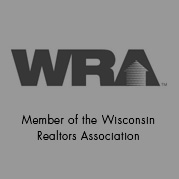What is the Board of Review?
The Board of Review consists of 6 residents of the Municipality. The Municipality Clerk functions as the Board of Review clerk. The Board of Review has the duty of reviewing evidence provided by both the Assessor and property owner in support of their opinions on the value of property and then ruling in favor of the best set of evidence and in compliance with the law. It is also the duty of the Board of Review to carefully examine the roll and correct all apparent errors in descriptions or computations, and to add any property to the roll that the assessor may have omitted. However, the Board of Review must notify the property owners concerned and hold hearings before omitted property can be added to the assessment roll and before any other lawful changes can be made.
Once the Assessor has valued the property, posted these values on the assessment roll, and signed the affidavit attached to the assessment roll, the values must be accepted as correct unless the testimony of sworn witnesses and the evidence they present indicate otherwise. The Board of Review is responsible for raising and lowering any incorrect valuation as well as correcting any errors in the roll. It is important to note that the Board’s function is not one of the valuation, but of deciding the validity of the facts presented, under oath, before it. All deliberations must be done in open session and the Board of Review is required to decide each objection by a roll call vote. If the Board of Review votes to change an assessment, it must state on the record the amount of the correct assessment and that the correct assessment is reasonable in light of all relevant evidence received. Notices of the Board’s determinations are to be sent by certified mail to property owners as the Board completes its work.
When does the Board of Review Meet?
By law, the Board of Review must meet sometime in the 30 day period commencing on the 2nd Monday in May. If the Assessment Roll is not yet complete, the Board will adjourn to a date certain based on the anticipated completion date for the Assessment Roll and Open Book period. The Board meets in the municipality building. The Board must establish a time for hearing each properly filed objection. At least a 48 hour notice of the time of the hearing must be given to the objector or the objector’s agent and to the municipal attorney and Assessor.
For an individual property owner who protests an assessment, the Board of Review is the first step in the appeal process. The property owner cannot pursue subsequent appeals allowed by law unless they have first appealed before the Board of Review. It is therefore very important that a property owner pay close attention to the information mailed to them with their Notice of Assessment change regarding the time stated for the Board of Review meeting and associated application and notification deadlines.
Are there any Special Qualifications for Board of Review Members?
Yes. A Board of Review may not convene unless it includes at least one voting member who has attended a Board of Review training session within the 2 years prior to the Board’s first meeting. Each year, the Municipality Clerk must provide an affidavit to the Department of Revenue stating whether the member training requirement has been fulfilled
When must I file the Written Objection to my property assessment?
This must be done 48 hours before the first meeting of the Board of Review. Under certain circumstances, the Board of Review may waive the 48 hour filing deadline. Upon showing of good cause and the submission of a written objection within the first 2 hours of the Board of Review’s first scheduled meeting, the Board will waive the 48 hour notice requirement. The Board may also waive the requirement up to the end of the fifth day of the Board of Review session if you submit proof of extraordinary circumstances for failing to meet the 48 hour notice and failing to appear during the first 2 hours of the first scheduled meeting. However, as a matter of record, it is recommended that this objection be filed in writing at least 48 hours before the Board’s first meeting. You must object to the total value of the property. You cannot object to only the land value or only the improvement value
Can I exclude a board member from hearing my objection?
Yes. A person objecting to their assessment can request the removal of any one Board member for any reason and can also request the removal of any Board member whom the objector believes harbors a personal bias or prejudice against them. A request to remove a Board of Review member must be made at the time the person provides their written or oral notice of intent to file an objection. This notice must be made at least 48 hours before the first scheduled meeting of the Board of Review or at least 48 hours before the objection is heard if the Board waived the 48 hour notice requirement. Furthermore, the notice must identify the member(s) to be removed, state the nature of the bias or prejudice, and estimate the length of time the objection hearing will take. Board of Review members may be removed for other reasons. A municipality must remove any member of a Board of Review who has a conflict of interest under an ordinance of the municipality in regard to the objection.
What do I say to the Board at the time of my hearing?
Assessment law establishes that the Assessor’s value is presumed correct unless the property owner provides compelling evidence that value is not correct. To have the assessment reduced, the owner must prove that the property is over assessed in comparison with similar property in the municipality. Wisconsin Statute 70.47(7)(ae) requires anyone planning to protest an assessment to provide the Board, in writing, their estimate of the total value of the property assessment they are objecting to and specific information that was used to arrive at that estimate. In particular, an objector should have considerable information that is relevant to the market value of their non-agricultural property. This would include a recent purchase price of the property and recent sales of comparable properties. Other factors include: size and location of the lot, size and age of the building, original cost, depreciation and obsolescence, zoning restrictions and income potential, presence or absence of various building components; and any other factors or conditions which affect the market value of the property. Remember that the Board’s sole responsibility is to review evidence regarding the value of the property. The Board will not discuss issues of property tax, municipal services, municipal employees or appointed or elected officials or any other subject that has no relationship to the value of the property.
Can I appeal the Board of Review’s decision?
Yes, there are two avenues of appeal of the Board of Review decision available to the property owner. One is to circuit court under Section 70.47(13) of the Wisconsin Statutes, and the other is to the Department of Revenue under Section 70.85. If a number of property owners feel that there are severe inequities in the entire assessment roll, they may appeal for a reassessment of the entire municipality under Section 70.75.
How would I appeal a Board of Review decision under Section 70.47(13)?
Section 70.47(13) provides for an appeal of a Board of Review determination to be by action of certiorari (a court order to review the written record of the hearing) to the circuit court. The court will not issue an order unless an appeal is made to the circuit court within 90 days after the taxpayer receives notification from the Board of Review. No new evidence may be submitted. The court decides the case solely on the basis of the written record made at the Board of Review. If the court finds any errors in the proceedings of the Board which make the assessment void, it sends the assessment back to the Board for further proceedings and retains jurisdiction of the matter until the Board has determined an assessment in accordance with the court’s order. Whenever the Board has made its final adjournment prior to the court’s decision, the court may order the municipality to reconvene the Board.
What are the procedures for appealing a Board of Review decision under Section 70.85?
When appealing a Board of Review decision under Section 70.85, a written complaint must be received by the Department of Revenue within 20 days after the taxpayer receives the Board’s determination, or within 30 days of the date specified in the affidavit under Section 70.47(12), if the taxpayer does not receive the notice. A filing fee of $100 must be submitted along with the complaint. Both real and personal property may be appealed under this section. The Department may not review the assessment if it is within 10% of the general level of assessment of all other property in the municipality, or if the property’s value exceeds $1,000,000 as determined by the Board of Review. The Department may revalue the property and equalize the assessment without the intervention of the Board of Review, if the revaluation can be accomplished before November 1 of the year in which the assessment is made or within 60 days of the receipt of the written complaint, whichever is later. The value, if adjusted by the Department, shall be substituted for the original value in the assessment and tax rolls and taxes computed and paid accordingly. Appeal of the Department’s decision can be made by an action for certiorari in the circuit court of the county in which the property is located.
I did not file a Formal Objection Form. Can I still request a hearing before the Board of Review?
Yes, if you have an extraordinary circumstance, you may attend the Board of Review, and request a waiver of the Formal Objection Form, providing evidence of your circumstances. The Board of Review may hear your objection.
I refused the Assessor entry to my property. Can I file a Request for Review or Formal Objection?
Property owners who fail to provide access to their property when contacted by the Assessor’s Office may lose their appeal rights. When the Assessor’s Office’s request for an inspection is refused, Open Book appointments for that year will not be available to the property owner. However, the property owner may request a review inspection for the next year at any time.
No person shall be allowed to appear before the Board of Review, or to contest the amount of any assessment of real or personal property if they have refused a reasonable written request by certified mail from the Assessor to view the property, 70.47(7)(aa), WI statutes. From the evidence before it, the Board shall determine whether the Assessor’s valuation is correct.
What is the most compelling evidence I can present to the Board of Review?
An arms-length sale of the subject property or a comparison of your home to other comparable sales is the best evidence to support an opinion of value. Property owners may also present evidence that their property’s assessment isn’t equitable when compared to other similar properties’ assessments.
What happens after I present my evidence?
After you have presented your evidence and answered any questions, it is the Assessor’s turn to present evidence. The Assessor presents evidence to support the assessment and answers questions from the Board of Review members. You will also have an opportunity to ask the Assessor questions.
When does the Board of Review make a ruling?
In most cases, the Board of Review makes its rulings at the end of each individual hearing. Property owners will also be notified of the board’s determination in writing.
What if I’m still not satisfied after Board of Review?
The Municipality Clerk’s office will send you notice of the Board of Review’s decision regarding your assessed value. That notice will give you subsequent appeal options, an example of which would be an appeal to the Circuit Court.
Can I protest my taxes at the time of payment?
Unless your taxes are illegal in some respect and you are prepared to file a claim in circuit court for recovery of the unlawful tax, the “protest” has little value. The time for appealing your assessment has passed by the time the taxes are determined and tax bills have been mailed. Contact the Municipality Clerk to learn what further options are available to you.






